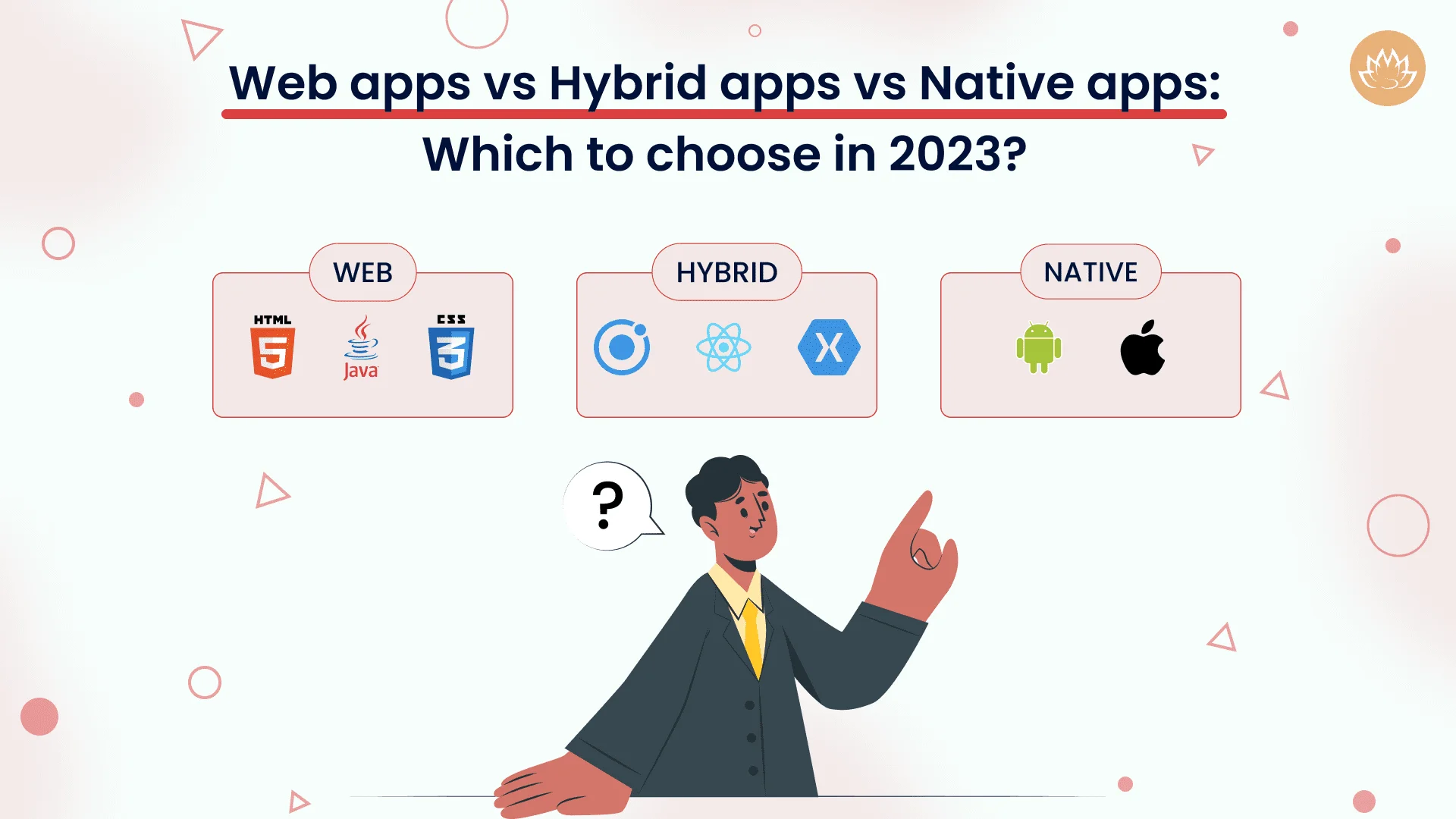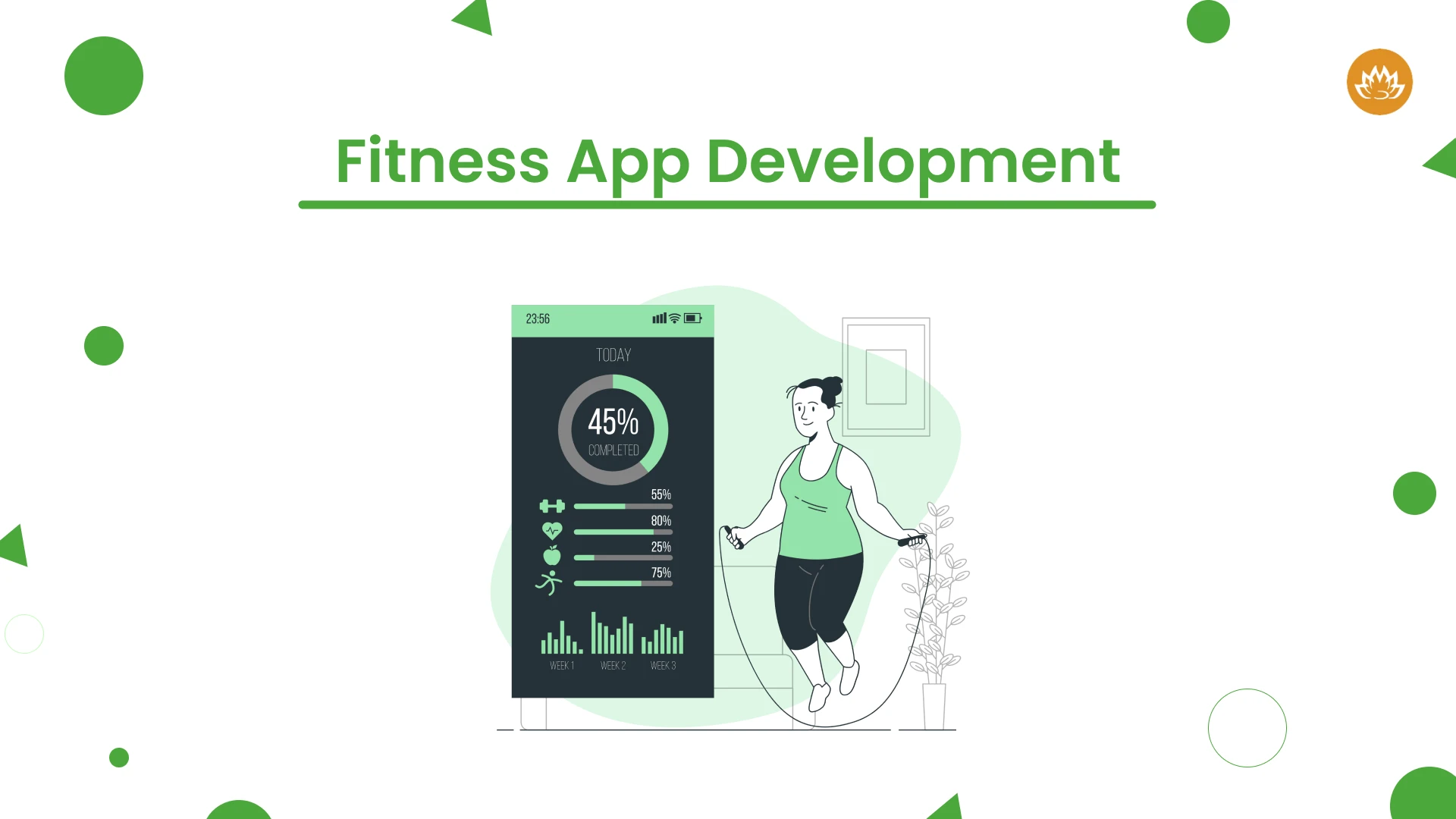The blog encompasses various driving forces of app development in terms of choosing the best mobile app and will guide you to find the best possible option for your app development journey.
What are Web Apps, Native Apps, and Hybrid Apps?
Any given application is a software that shares information with the users enabling them to fulfill their requirements. There are numerous development methods for building diverse applications and different ways to design internal functionality.
Apps built for a specific platform or a device are called Native Apps. To access native apps, users need a suitable software version on their chosen device. Some examples of native apps are WhatsApp, Pokemon, Spotify, etc.
Hybrid Apps are native apps that have a web browser integrated inside them. You can install a hybrid mobile app on your device and can run on a web browser. Some examples of Hybrid apps are Gmail, Uber, Instagram, and Evernote.
Why There is a Need for So Many Diverse Applications?

Applications initially used a client-server architecture and worked as an on-premise server that can store and process data centrally. Every device has a separate app for each user and was designed to communicate with the server. Developers had to create different client app versions that needed to be installed on multiple platforms.
Beginning of the Web and Mobile Apps Era
As the internet evolved, every location was globalized leading to easy tracking of servers and clients. With web applications, more users got attracted and there was flexibility. Users got access to server functionality directly from the browser rather than installing separate client apps. More mobile devices were created leading to the emergence of innovative platforms giving more choices to the users. Software functionalities can be accessed in different ways either by using a browser or by installing the app on devices.
Problems in App Development
When the world consumes so much innovation and technological advancement every day, businesses need to keep up with the pace. Hence they must brainstorm on which mobile app is the best and how can it capture maximum users across the world.
Should they develop web apps that work only on browsers, or should they create applications that can work on desktops? Do the app developers need to write the same software in multiple languages? These questions need to be addressed. From testing, and packaging to deploying the software to various platforms, businesses are posed with the tough challenge of choosing the right technologies. So currently, bug fixing, updating apps with new features, and maintaining software have become more expensive.
Differences between Web Apps and Native Apps
Functionality
Web apps enable user interaction powered with web browsers, but cannot access device features despite having the best UI. With Native apps, users can interact with their devices giving access to native features like device location tracking, microphone and cameras, various device elements, user contact lists, and several security features.
User Experience
Web apps are dependent on browsers and hence cannot provide consistent user experiences. Images and other features may appear different and can be difficult to access in other browsers. The UI may get disrupted due to browser window resizing.
Native mobile apps give promising user experiences by filling the entire screen and making them comfortable with the interactions. Also, it can send push notifications to the users.
Performance
Native apps perform better than web apps as they outperform in terms of speed, responsiveness, and user interaction. This is possible only if users download the app and install it with regular software updates so that the app can run seamlessly. On the other hand, web apps can give more power to the users in terms of accessibility.
Client Outreach
Web apps can attract limited users who have an internet connection. For apps like mobile web apps, users need to go through multiple processes from opening the browser to finding the app. On the other hand, native apps can be designed in a manner that they can be accessed offline on mobile devices and can be easily discovered. Within the app store, you can create marketing campaigns to attract more users worldwide.
App Development
Web apps are cost-effective, simple, and can be rapidly developed. It has a shorter time to market due to the simple development process and is easy to maintain, test, and update. Native apps are costlier and need a specialized developers team that has cross-platform mobile development experience.
Differences between Web Apps and Native Apps
Cost Effectiveness
Hybrid apps are equally capable as native apps in terms of user experience and performance but at an affordable cost. By using the most popular app development languages and technologies, you can build hybrid apps. Further, you can integrate hybrid app development frameworks like Cordova, Ionic, and React Native, everything at a lower cost, yet giving better reach and visibility.
App Development
Developers need to rewrite and redesign the entire app in the case of native apps. Hybrid apps need a single codebase for writing app functionality. The code can be wrapped in a lightweight native apps shell that provides all the native features in mobile devices.
Differences Between Hybrid Apps and Progressive Web Apps
Progressive Web App technology is an advanced version of web apps that are accessible in modern browsers and can give native-like experiences. With JavaScript framework integration on your existing web app, you can create a PWA that can send notifications, track user location, and much more. The main differences are:
Performance
PWAs are lighter in size as compared to hybrid apps. They need very little mobile storage and memory. With the advent of the latest technologies, in certain cases, there are chances of increased mobile battery usage due to browser dependency.
Organic Traffic
App stores have both the apps PWAs and Hybrid apps. However, PWAs are preferable and rank high in terms of search engine results. With PWAs, the search results are better and target the exact problem as compared to Hybrid apps.
Experience
PWAs are new in the market. On the other hand, hybrid and web apps have strong developer and community support as compared to PWA. Hence, hybrid app development technology is more mature and well-experienced.
When and Which App to Use For Your Business?
Big companies combine various technologies to build robust apps. To get the maximum customer outreach, they may use native, web, and hybrid apps for different reasons. The below factors are essential elements you must consider while choosing the best kind of app:
Customer Needs
Every product has a different customer base and a different frequency of purchases. Some products have a huge customer base that mostly uses mobile apps for availing services. For such cases, native apps work the best as compared to web and hybrid apps.
Marketing Strategy
Companies craft app development projects based on their marketing objectives. To reach a larger audience, they build progress web apps. Web apps can provide limited access with a free trial and have limited functionality. Later, they convert such apps into native or hybrid to improve user experiences for their paid customers.
Time to Market
Mostly fresh startups prefer web apps to create MVP and to get a better customer reach. If you are thinking of building native or hybrid apps, know that it needs more time to plan, develop, and launch it successfully.
Complexity
For certain mobile apps, there are more complexities with high-level features. In such cases, the only option is to build hybrid apps or native apps that can fulfill all the business needs. Apps for mobile banking need a lot of features and advanced technologies to keep the data safe and secure.
Web apps vs. Hybrid apps vs. Native apps
Whitelotus Corporation Can Help You Build The Right App
Author
-

Kirtan is CEO of Whitelotus Corporation, an emerging tech agency aimed to empower startups and enterprises around the world by its digital software solutions such as mobile and web applications. As a CEO, he plays key role in business development by bringing innovation through latest technical service offering, creating various strategic partnerships, and help build company's global reputation by delivering excellence to customers.
View all posts












